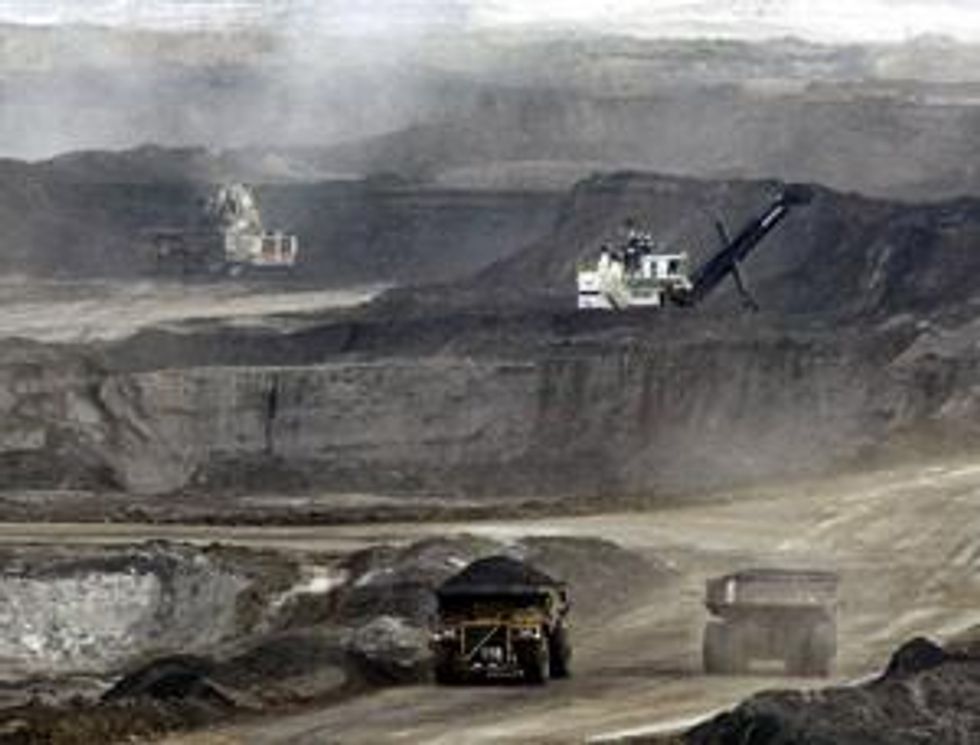PORTLAND - Conservation groups recently held a news conference to sound the alarm over an oil pipeline project that isn't even officially on the table. What's the big deal?
It seems simple: Take an existing oil pipeline that connects tankers in Casco Bay to refineries in Montreal and pump a different kind of oil through it in the opposite direction. The difference seems minor.
The difference is that this is no ordinary oil. It's called "diluted bitumen," and it's highly toxic, corrosive and hot -- and, according to a recent report by the Cornell University Global Labor Institute, three times more likely to spill than conventional crude.
A spill would threaten Sebago Lake, where Greater Portland gets its drinking water, or even Casco Bay and its fisheries. One spill here could be devastating.
I spent the last three months in Alberta, Canada, at the tar sands, the source of this so-called "oil." It's the second-largest petroleum deposit in the world -- roughly the size of Florida -- and an industrial megaproject of unimaginable scale.
Much of the bitumen is mined in open pits that stretch out to the horizon, an ecological dead zone. The waste water from the processing is dumped into vast toxic lakes, witches' brews of arsenic, mercury and countless other carcinogens. The smell is sickening. It gets into your clothes, your skin.
I spoke with people who live on the edge of this wasteland, whose health and livelihoods have been destroyed by the tar sands industry. High rates of cancer are normal for these communities, where fishermen bring up deformed fish in their nets, evidence of hidden pollution. A woman named Susana -- who now works to fight the abuses of the tar sands industry -- lost 13 members of her extended family to cancer. In one month.
I stood in the middle of a crude oil spill, saw it coat the grassy banks of a river, rubbed the sticky tar between my fingertips. The next week, the pipeline company responsible for the spill said it would be cleaning up only some of the oil, and that the 100,000 people affected were "lucky" that it wasn't worse.
The broader political and economic arguments around the tar sands are heated and complex, and there are big bucks at stake for governments and oil companies. The important thing, though, is that every time a pipeline crosses a community or threatens a water source -- from Texas to Montana to Vancouver to Maine -- people are beginning to ask: Who's really going to benefit? And who will bear the risk?
These pipelines connect us all: to each other, through our shared risk, and to the communities in Alberta that are most affected, and that deal with the consequences of our oil addiction every day.
Recently, I spoke with a pipeline expert at the Canadian company Enbridge -- on the condition of anonymity, since Enbridge is behind this project -- who confessed to me that, in his opinion, the tar sands industry and its pipeline infrastructure are risky and unsound. He's looking for a new job.
Pipelines spill, he told me, because they're created and monitored by humans. Oil spills will happen. And if Enbridge's tragic record in Michigan -- where a 2010 pipeline break resulted in the discharge of at least 843,444 gallons of oil into the Kalamazoo River -- is any indication, they can happen on a devastating scale.
I'm new in Portland. Over the last few weeks I've explored Maine up and down, talking to people, hearing their stories. I have seen, in a million small ways, how connected Mainers are with the land, be they fishermen, hunters or lovers of autumn leaves.
I have seen, too, how essential water is to Maine's character and livelihood: the boats in Casco Bay, the rocky coasts, the fishing industry, the lakes where mist rises on cold autumn mornings.
This land and this water are too precious to be put at risk.

